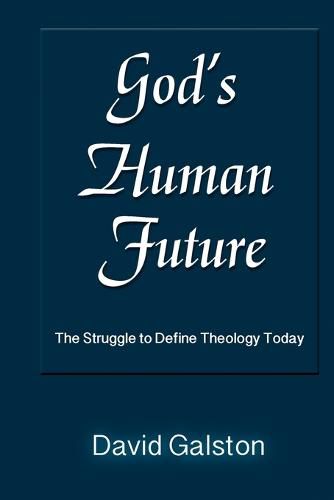Readings Newsletter
Become a Readings Member to make your shopping experience even easier.
Sign in or sign up for free!
You’re not far away from qualifying for FREE standard shipping within Australia
You’ve qualified for FREE standard shipping within Australia
The cart is loading…






This title is printed to order. This book may have been self-published. If so, we cannot guarantee the quality of the content. In the main most books will have gone through the editing process however some may not. We therefore suggest that you be aware of this before ordering this book. If in doubt check either the author or publisher’s details as we are unable to accept any returns unless they are faulty. Please contact us if you have any questions.
Biblical studies and theology for some time now have operated as idependent fields of study, but recent developments have opened up new avenues for them to engage one another. Both fields must now address the question: what is the value of religion for the future? Here Galston draws upon two types of theology for his response. The first, Covenant theology, arises from the Hebrew Bible, iwht its image of God in agreement or covenant with a nation. The second, Enlightenment theology, arises from the wisdom tradition where the divine finds reality in the lifestyle of individuals and communities.
After the Council of Nicaea in 325 CE, Christianity came to be defined not by the parables of Jesus, which are open to many different interpretations, but rather by the belief that history will end in apocalypse. With the rise of the sciences, Western culture has kept this apocalyptic outlook but replaced religion with human reason. Galston rejects the belief that religion can be reduced to scientific ideas. Instead, he argues that religion, like poetry, holds value because it expands one’s vision of life. Understood in this light, religion, though a human creation, is certainly not a waste of time.
$9.00 standard shipping within Australia
FREE standard shipping within Australia for orders over $100.00
Express & International shipping calculated at checkout
This title is printed to order. This book may have been self-published. If so, we cannot guarantee the quality of the content. In the main most books will have gone through the editing process however some may not. We therefore suggest that you be aware of this before ordering this book. If in doubt check either the author or publisher’s details as we are unable to accept any returns unless they are faulty. Please contact us if you have any questions.
Biblical studies and theology for some time now have operated as idependent fields of study, but recent developments have opened up new avenues for them to engage one another. Both fields must now address the question: what is the value of religion for the future? Here Galston draws upon two types of theology for his response. The first, Covenant theology, arises from the Hebrew Bible, iwht its image of God in agreement or covenant with a nation. The second, Enlightenment theology, arises from the wisdom tradition where the divine finds reality in the lifestyle of individuals and communities.
After the Council of Nicaea in 325 CE, Christianity came to be defined not by the parables of Jesus, which are open to many different interpretations, but rather by the belief that history will end in apocalypse. With the rise of the sciences, Western culture has kept this apocalyptic outlook but replaced religion with human reason. Galston rejects the belief that religion can be reduced to scientific ideas. Instead, he argues that religion, like poetry, holds value because it expands one’s vision of life. Understood in this light, religion, though a human creation, is certainly not a waste of time.